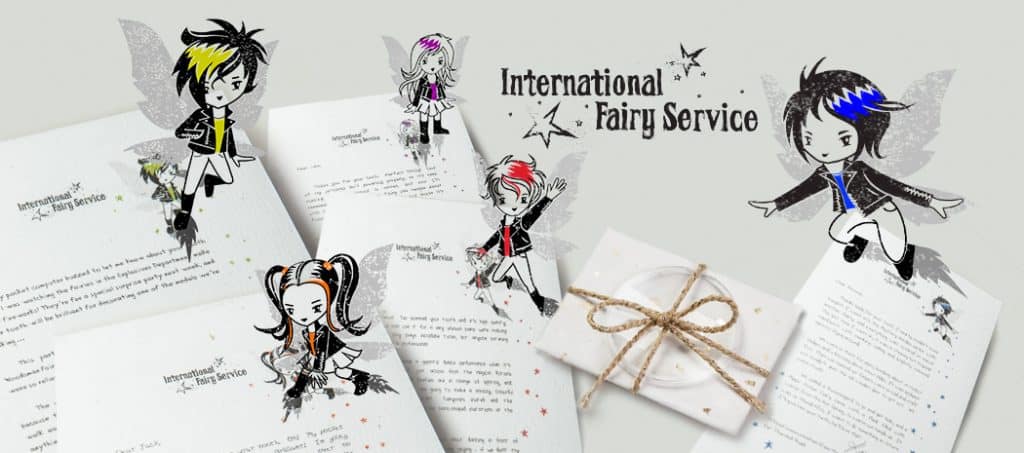
Sensory Processing Disorder & Our Boy with Down Syndrome
So what is Sensory Processing Disorder and who ‘gets it’?
All day, every day, we receive information from the world around us via our senses – food we bite in to, things we touch, what we see, smell, noises we hear and so on. Our nervous system is constantly assessing all this information and generating appropriate physical responses. Everything we do requires us to incorporate sensory information into meaningful and successful interactions with the environment.
We all have different levels of what we class is an acceptable level or type of sensation: I personally can’t stand being sticky, having a hat on my head, the feeling of socks slipping down over my heel in trainers, the kids asking me questions all at once, not getting any down time in a day/evening and there’s more to my list.
In fact, I dislike these things SO much, that when they occur I just can’t think of anything else and I have to resolve them IMMEDIATELY. I just can’t function. If I was a child I might deal with the ‘too many people talking at once thing’ by crying / hitting whoever was closest / shouting / banging on the table / have a tantrum / start wringing my hands… in these situations, their fight and flight (sympathetic) nervous system is too active and they need help from their rest and digest (parasympathetic) nervous system to calm them down and help them function normally.
Many children have very different tolerance levels with a reduced ability to integrate the information their nervous system is receiving. Some don’t realise they’re having a sensation overload (or under-load) or what it is that’s upsetting them or making them feel bored. They just feel stressed / need to hit / shout / blow raspberries all day / have a tantrum / go to sleep / behave erratically / find it hard to keep their balance / want to be by themselves / want everyone to play with them all the time….etc Their nervous system is in overload / underload and can’t function properly.
The behaviour that then ensues (often seeking some kind of sensory input) can be unhelpful to them, antisocial and more importantly, blocks them from learning and progressing to reach their potential. Speaking very basically, Sensory Occupational Therapy aims to improve the balance between the fight and flight part of the nervous system (the over excited/ shouty / whizzy part) and the rest and digest (calm, sleepy, slow) part and improve the way that sensory information is processed by the body.
I’m very interested in this personally (see below) and professionally. I see so many children who aren’t fully at ease with their environments or functioning as well as they could: my osteopathic training has taught me to get to the cause of something and not just treat the symptoms. I’ve always had a very keen interest in physiology and how bodies work and applying that to my clinical practice (I also have an Honours degree in Neurophysiology from Bristol and was a trainee Cardiac Perfusionist (running the heart lung machine during open heart surgery) at Barts Hospital in London. There really does seem to be a reason for everything and if you or your doctor doesn’t know what’s going on, there absolutely will be someone somewhere who does.
If your child has a label (like Down Syndrome for example), please don’t accept – ‘oh it’s because they have Down Syndrome, there’s nothing we can or would do about that, it’s just the way it is.’ I will write more about this in future posts but please be curious. What’s actually going on and can you find someone to help you look at the bigger picture to see what the cause might be and if it’s something you can follow up / get help with…
I thought it might be helpful to some people to hear about Sensory Processing Disorder & our boy with Down Syndrome and our experiences with Sensory Integration Therapy). It goes without saying that what is right for our child may not be right for yours but you may see some similarities or be intrigued enough (I hope) to look into it more. Our youngest son is almost 4 and has Down Syndrome and is mainly a very delightful and engaging little boy with a keen will to learn. He’s been finding a few things difficult, which have been slowing his progress. His main difficulties have been his shocking balance (would fall over an eyelash), speech difficulties, really not keen on the TV/noisy unfamiliar places, problems with some fine motor skills and going through various phases of throwing things.
3 sessions over 3 weeks and we’ve seen a stark improvement with our small:
3 weeks ago:
Very wobbly on his feet though he’s been walking for 18 months, needed lots of hand over hand help putting jigsaw pieces together and other fine motor activities, struggling to copy sounds accurately and was just starting to say 2-part words, would get frustrated with anything he was finding hard and want to stop, we had to repeat instructions until he’d followed them. No sign of potty training.
3 weeks later (NOT a long time if you have Down Syndrome!):
Almost sturdy balance wise, puts jigsaws together easily and quickly (though we have to point out which piece goes where the majority of the time – larger puzzles), can do a brand new 6 piece unassisted, can handle mini figures well enough to enjoy playing with them, will attempt to copy 8 word sentences, starting to favour speech over makaton, far less frustration, more alert, staying with activities for longer, staying with tasks he finds difficult until it’s completed and eating more quickly, following complicated instructions first time. Potty training news: mostly dry (today, maybe too early to report!)
So what have we been doing? Well, whether it be while we’re doing one to one play or just going about our day, very simply…
When he’s feeling over-stimulated (over excited, antisocial behaviour, frustration, unable to perform simple tasks, not concentrating etc): we calm him down and then engage him in a task:
We sit him on our lap and squeeze his shoulders, arms, hands, body, legs & feet
Sit in a row row row your boat position and ask him to pull back against us x 10
Calm rolling movements (sitting on our lap and roll him to the left and the right – or on a gym ball)
Ask him to push against a wall to the count of 10
When he’s feeling under-stimulated (can’t get sounds/ words out, falling over / wobbly, fumbling with motor tasks, day dreaming): we stimulate him and then redo the same task he was having trouble with or a similar task.
Bounce him x 5-10 time on a gym ball
Do a crawling race with him
Help him do x 10 jumps
Use an electronic toothbrush around and in his mouth, blow through whistles, drink of fizzy water, chew on dried fruit etc (if about to do speech tasks)
Use a portable vibration pad (e.g. lower back massage pad)
Deep pressure on hands / clapping, high fives, stimulate his palms with a hairbrush prior to fine motor tasks
This all seems too simple and too good to be true but actually it really does seem to be working and we haven’t been able to do it 100% of the time at all.
The theory is that over time he will learn to self regulate, integrate more appropriately and his tolerance levels will become more reasonable. His nervous system will reset. It will affect all of him and as a result, there will be improvements in all areas. Us humans aren’t built in different sections, we’re whole beings where everything is linked to everything else. Our SOT describes it as a sensory fog that we need to lift so our boy can do what he’s actually capable of.
I’m impressed so far!
A fabulous book to read on Sensory Processing Disorder is The Out Of Sync Child by Carol Stock Kranowitz
This post on Sensory Processing Disorder & Our Boy With Down Syndrome is the 1st in the series of our journey with Sensory Integration Therapy and I hope it can help others in some way. You find find the others in the series here:
Sensory Processing Disorder: Sensation Seeking & ‘Antisocial Behaviour’
Sensory Processing Disorder: Sensation Avoidance
Sensory processing: Meltdown Management
Sensory Processing Disorder: Therapeutic Listening – a guest post by Carole
Visual Overload: The Power of Puzzles. A guest post that I wrote for World Down Syndrome Day over on Downs Side Up.
Potty Training A Child With Zero Interest.
Do also have a look at:
The Sickly Child
Encouraging Your Child With Down Syndrome to Crawl
To receive our Magical Newsletter …
Magical moments for you and your child to share
Take your children on a magical journey with these unique, hand-drawn letters from two of the most magical places on earth … the North Pole and Fairyland.
Hide them among the bills and junk mail, lay them on the table first thing in the morning, stashed among the toys, or snuggled up in their bed. You choose where your children find the letters, to create a magical family tradition the kids will love!
***
Download your FREE Guides To Common Christmas Conundrums
“The best Christmas idea ever.” – Charlie Condou (Actor)
***
“These were the best things I have ever (and I mean ever) ordered!!
I’ve never seen the magic or happiness last so long x”
– Jolene (August 2017)
***
If your child believes in Father Christmas and you want to keep the magic for as long as possible, There are DIFFERENT and NEW! Christmas Letters each year! You can preorder these for Christmas 2018 for dispatch from September.
***
***
Fairy & Tooth Fairy Letters
Fairy letters from a world of dragons (who set fire to your lunch by mistake), Mystery Gardens (with changing adventures inside), Magical Potion Fairies, Secret Underground Passageways, Magical Tree Bark, Time Travel … and more.
***
Dummy Fairy Letters are available too!
Come and join us on Facebook, or find us over on Christmas Traditions & Magic For Children for all year round festive chat.
To receive my blog posts, please sign up at the right hand side of this page or for Product or Christmas News and promotions from the International Elf Service, please sign up at the bottom of the page.
Emily x





I just came across this blog post, when searching about sensory processing disorder for my 2.5 year old son with Down syndrome. Thank you for this post. It has a lot of great information and makes me feel a little relief that I can help him.
Thank you so much for your informative post which I came across whilst searching for an OT who specialises with Sendory Integration. Since I also live in London I’m wondering what f you might know an OT who could help us put a programme in place for our 6yr old who has just been diagnosed with severe sensory processing disorder (which u you know everyone thought was Autism & ADHD!)
Thanks for this post, I am trying to find ways to just do everyday things with my son, 7yo with DS. Its quite frustrating at times, shopping especially, even though his big brother (11yo) and I love the markets, the 7yo behaviour rules us.
I know this is not fair on his big brother, plus I am sick of it and stressed out as every attempt to go somewhere turns pear shaped. He can get out of the stroller but wont sit in it anyway if he doesn’t have a phone with youtube on it. I hate this solution, but at the moment its the only way his brother and I can have some peace and no stress for a little while. Same goes for following instructions when outside especially (like STOP!) Any suggestions? Most appreciated.
Hi Toni – that does sound very hard, and I totally understand about needing a break too. Our boy’s behaviour is very much better if he’s interested and stimulated and if he’s outside pottering about in the park or the woods. But then again, over stimulation can result in poor behaviour too. Would a park trip before a shopping trip help? Physical exercise is a game changer for us. Can you son walk? Does he need to be in the stroller? Could he be on reins so he doesn’t dart off but so he can look and explore everything with you too perhaps?
I have read this before but it was great to have a re-read. Thanks for linking it up to #bigfatlinky
Thanks Al x
What a great post a fantastic resource for parents. I am hearing more and more that children who have Down’s Syndrome also have Sensory Processing Disorder. I think that you are doing a great job – awareness is key.
Thank you so much for reading this. I am hearing more and more about it with typical children too. I wonder where it’s all coming from? I’d love to hear about things that have worked for others too. Emily x
I am so glad that you linked up and that I got to read this post. So informative and useful on so many levels. I am glad you are impressed with the effects so far. Thanks for linking up #bigfatlinky
There’s so much talent and knowledge out there – it’s just a question of hearing about it and giving things a try. Thank you for your lovely comment x #bigfatlinky
Great piece as ever, Emily! Darragh doesn’t seem to have too many sensory issues but I have noticed that bouncing on the gym ball or doing something physically really improves his concentration and fine motor skills. Any useful tips on behaviour/discipline?
Hi Nikki! Thank you that’s really kind of you. There’s a strong case for all primary school children taking movement breaks far more frequently than they do! I did another post, which again is just what we do, called Disciplining Kids. Have a lovely weekend! Emily x
Thanks Vicki – I appeared to have added an extra piece of code somehow! Corrected, thanks for pointing it out!
Such a useful post to so many, and all us mums-my kids get so overexcited and I need to help support them in relaxing. By the way you need to add the code in HTML mode so it appears as a badge. Thanks lovely for linking up x
FAB, informative and extremely useful post! Thank you so much for sharing. Hayley #SENDBritmums
Thank you so much Hayley – that’s lovely to hear! x
Hello! My name is J.P. Deckert and I am with the Down Syndrome Guild of Greater Kansas City. We loved the article and were wondering if we could have permission to use it in our newsletter. We would definitely give credit to you in our newsletter for the article if you are willing to let us use it. Thanks for considering!
Thank you so much for having me and I hope others may find this interesting and helpful too.